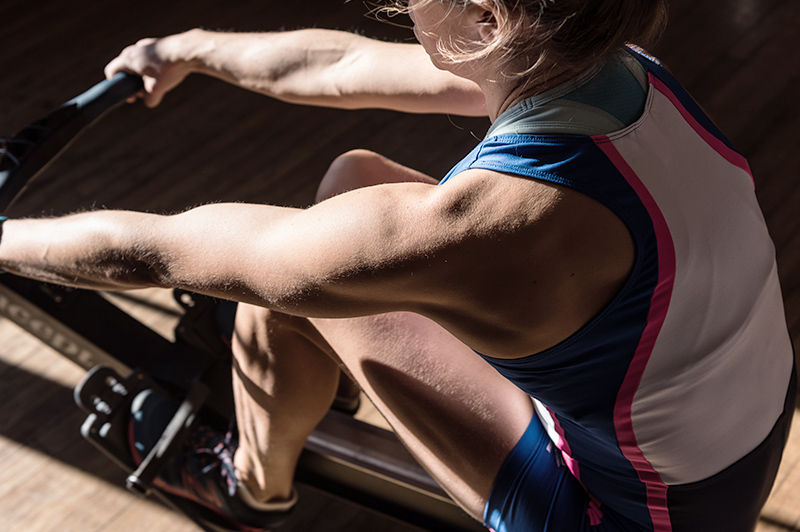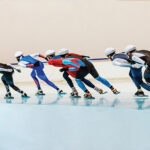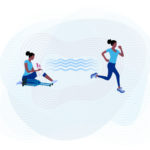Female athletes and sports injuries: Psychology matters

If the goal of sports medicine is to promote sports participation, the state of an injured athlete’s musculoskeletal system is part of a larger puzzle. In fact, a growing body of research suggests that psychological factors also play a significant part in how athletes recover and if they return to sports.
Consider anterior cruciate ligament (ACL) reconstruction. While studies show that most athletes regain normal knee function after surgery, many athletes still do not return to sport: several studies have reported return-to-sports rates of 45 to 65 percent.
“When an athlete learns they’ve torn their ACL, the response is often devastation,” says Melissa Christino, MD, an orthopedic surgeon in the Sports Medicine Division and Female Athlete Program at Boston Children’s Hospital. Recovery allows athletes to resume activities they’ve structured their lives around, but female athletes have been found to be statistically less likely to return to sports than their male counterparts.
“The negative psychological responses to sports injury experienced by many female athletes can contribute to significant barriers to their rehabilitation and return to sports,” says Christino.
In a recent paper published in the Diversity issue of Arthroscopy, Sports Medicine, and Rehabilitation, Christino and her colleagues explore the links between an athlete’s mental and emotional state and their physical recovery from injury.
Sports, psychology, and female athletes
While the positive physical and emotional benefits of sports are well documented, female athletes face a host of unique stressors compared to male athletes. Sports opportunities for women and girls continue to be limited, despite the advances of Title IX. Further, no matter how hard they train or how many medals they earn, female athletes are often trivialized through lower salaries, lack of visibility, and hypersexualized depictions in the media.
Unique stressors on female athletes
- unequal access to sports opportunities, facilities, and equipment
- objectification and trivialization of female athletes
- sexual harassment and violence
- body image concerns and pressure to maintain an unhealthy weight
“Among adolescents in particular,” says Christino, “sexualized images of female athletes give young women a warped sense of what it means to be an athlete, what it takes to be strong.”
These stressors can contribute to a range of psychological disorders, including depression, anxiety, and disordered eating, all of which are common in female athletes. Compared to male athletes, female athletes are five times as likely to develop an eating disorder. This, in turn, can increase an athlete’s injury risk and interfere with her recovery if she does get injured.
Emotional distress is a common experience for injured athletes, regardless of gender. Nearly half of injured athletes suffer from some symptoms of depression. Those facing a lengthy recovery often experience prolonged feelings of loss, frustration, and low self-esteem.
The emotional and mental responses to injury are real and can either support or pose a significant barrier to returning to sports. Favorable factors include psychological readiness, self-efficacy, and self-esteem. On the flip side, fear of reinjury, fear of physical movement (kinesiophobia), and psychological distress decrease the likelihood of an athlete’s future sports participation.
Whole athlete care
“As an orthopedic surgeon, I’m trained to do surgery and focus on an athlete’s physical recovery,” says Christino. Yet through experience and research, she knows that patients often need more than that.
As a physician at Boston Children’s, Christino can make referrals to colleagues within the Sports Medicine Division who specialize in sports psychology, mental skills training, nutrition, and more. She encourages any orthopedic surgeon to be aware of their female patients’ unique experiences and screen for emotional distress. And if they have concerns, to refer that patient for follow-up care.
Simply asking a few questions can have therapeutic benefits. “When you ask a young patient about their feelings, it normalizes the emotional side of a sports injury,” says Christino. “You’d be surprised by the responses you get when you acknowledge that they’re going through something hard.”
Questions to consider asking an injured athlete
- How have you been dealing with your injury and recovery from an emotional standpoint?
- Do you feel sad or depressed about your recovery?
- Do you feel that you are able to control how well you will do with your rehab?
- Do you think you have the mental and physical skills needed to get better?
- How are you feeling about yourself at this time in your recovery?
- Have you been able to stay involved with your team and teammates?
- Do you feel like you’re ready to return to sports?
Learn more about the Sports Medicine Division, Female Athlete Program, or refer a patient.
Related Posts :
-

Relative energy deficiency in sport (REDs): When athletes run on empty
The strength, skill, and speed of Olympic athletes help the rest of us understand human potential in a new light. ...
-

Not just a physical thing: The psychology of sports injuries and recovery
“Nobody plays sports expecting to get injured, but unfortunately, injuries are part of sports,” says Melissa Christino, MD. As a ...
-

Athletes and fatigue: Why am I so tired?
Working out can boost physical and mental energy. Yet sometimes, athletes feel more fatigued than energized. "Feeling tired after a ...
-

When athletes push too hard: How to screen and when to refer
With the rise in the number and competitiveness of female athletes, overtraining has become a serious health risk for many ...





